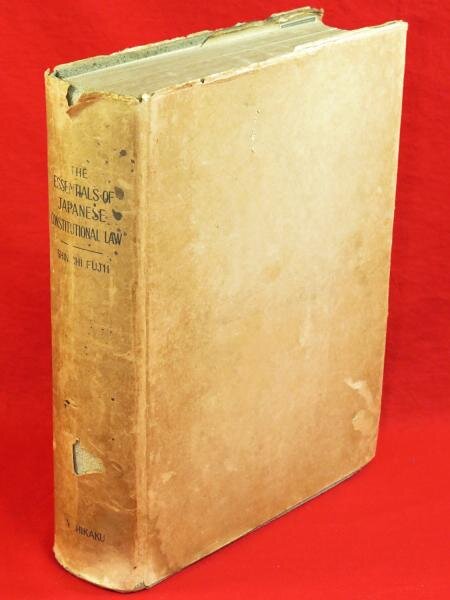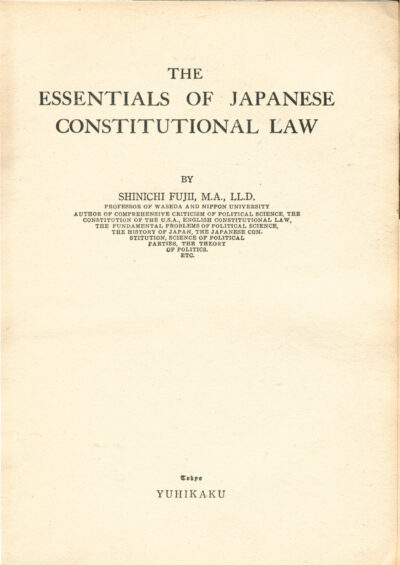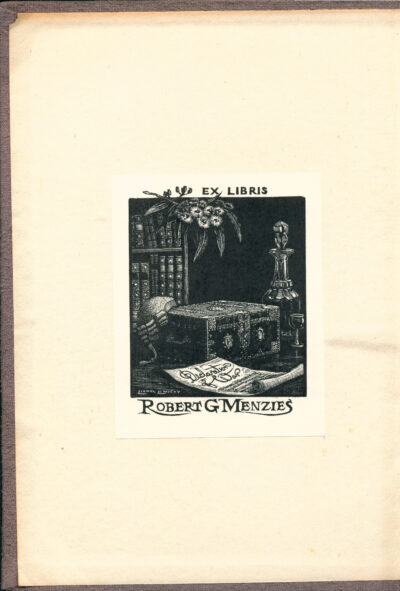Shinʼichi Fujii, The Essentials of Japanese Constitutional Law, 1940
Shin’ichi Fujii was a Professor of Political Science at Waseda University in Tokyo, who had notably spent some time being trained in the United States. The Essentials is a rare attempt to explain the Japanese constitution to a western audience published just as tensions between Japan and the West were reaching their height. The book received extensive criticism from western reviewers for projecting a fundamentalist interpretation of Japan’s history and political system. This maintained that the Japanese state was founded 1.8 million years prior by the Sun Goddess Amaterasu Ōmikami, that the constitution was therefore divinely sanctioned and unchangeable, and that the imperial dynasty was an unbroken lineage that vested sovereignty exclusively in the Emperor.
Experts took the book’s thesis as further evidence of a nationalist takeover of the Japanese university system, something that had previously been demonstrated by the prosecution of Professor Tatsukichi Minobe in 1935. Minobe had argued for a liberal interpretation of the constitution which questioned the divine right of the Emperor and maintained that he was an organ of the state rather than being above the state, leading to the subsequent banning of Minobe’s books. In this context The Essentials might be seen as a statement of defiance to the West, rather than any sort of olive branch aimed at increasing cultural understanding.
We have tantalisingly few details about when Menzies received his copy and under what circumstances, though we do know that he had a fascination with constitutional law. Perhaps he received and read the book in 1940 as a wartime Prime Minister trying to get his head around how his potential enemy functioned, or perhaps the book was the first step towards Menzies educating himself on the Japanese culture and people which would later bear fruit when he rebuilt Australia’s diplomatic relationship with them. Even though we are limited to speculation on how Menzies might have used the book, such speculation still helps to illuminate the context in which Menzies operated when it comes to one of the most important areas of international relations with which he dealt. The book is also an important artefact of the ideology of Imperialist Japan and of the massive cultural divide which underpinned the Pacific Conflict in which so many Australians lost their lives.
You might also like...
Sign up to our newsletter
Sign up for our monthly newsletter to hear the latest news and receive information about upcoming events.





